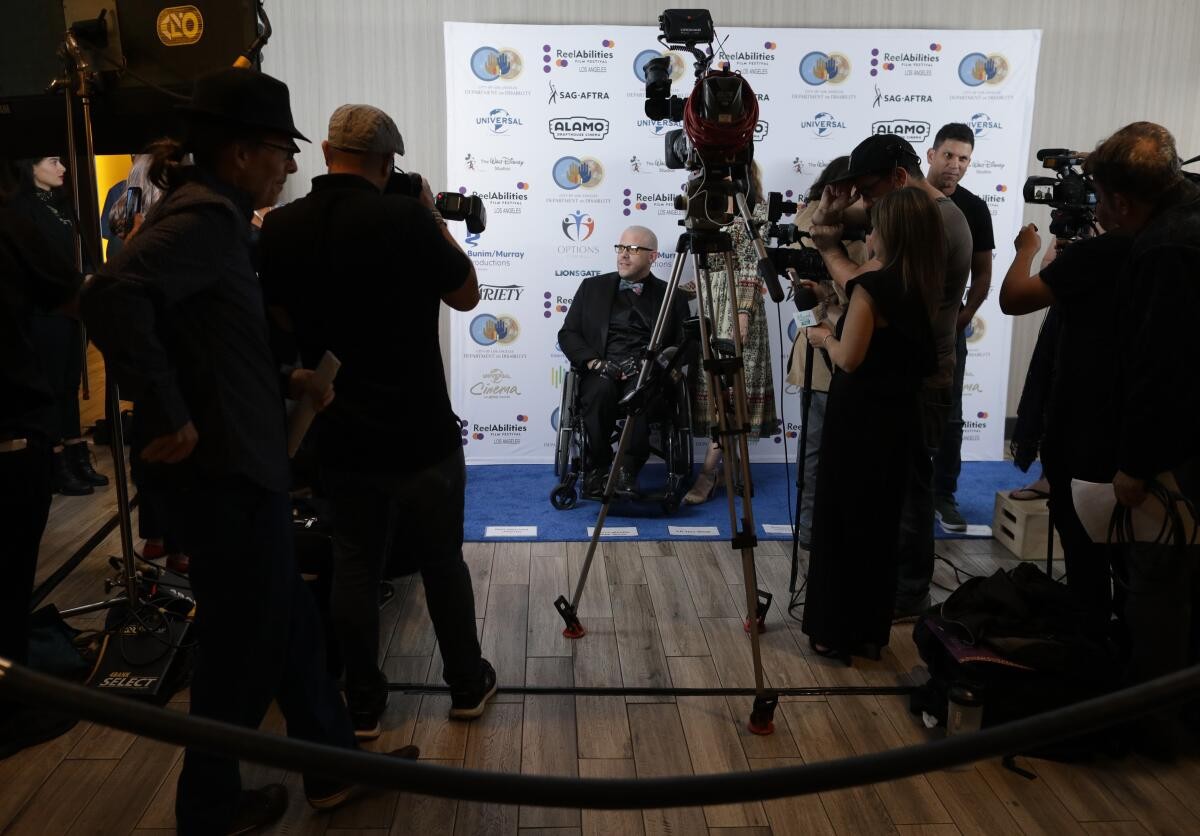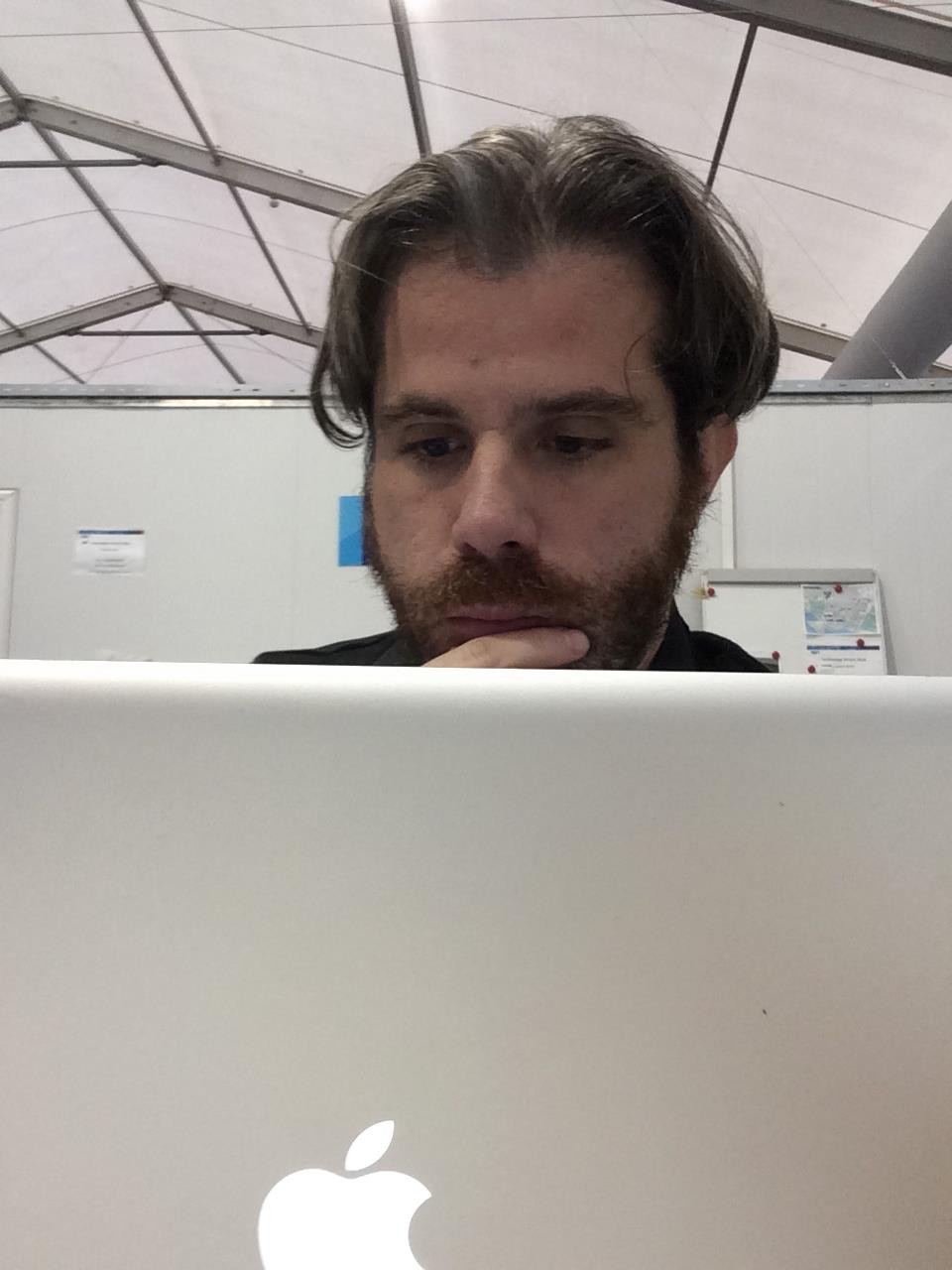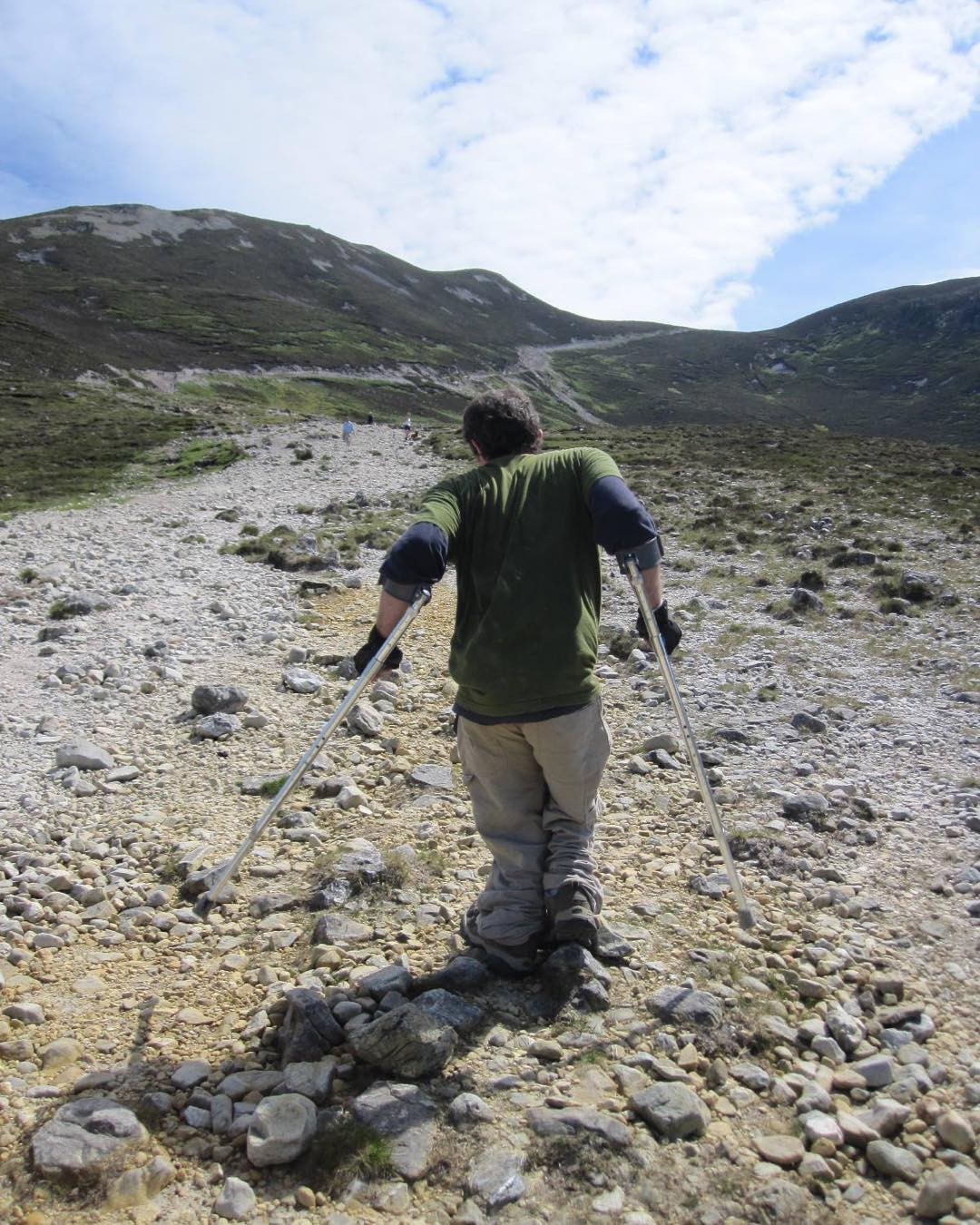Alright – so today we’ve got the honor of introducing you to Michael J. Dougherty . We think you’ll enjoy our conversation, we’ve shared it below.
Michael J. Dougherty , appreciate you joining us today. Let’s kick things off with your mission – what is it and what’s the story behind why it’s your mission?
I was born with Spina Bifida, which left me paralyzed from the knees down at birth. I am also in love with movies. My earliest childhood memory is when my mother took me to see E.T. when I was three and recovering from brain surgery. Ten tears after that, I saw Edward Scissorhands and saw myself for the first time on screen. It changed my life. I want to make movies that use disability in ways that avoid treacle and cliches. It is a complex industry for anyone to break into, but it is challenging when there isn’t a precedent.
I co-founded the Los Angeles chapter of the ReelAbilities Film Festival, which focuses on movies by and about the disability community. I did this, in large part, to prove there was a viable market for these types of stories. I also wanted to hold up those voices because, even if I never found success, the others coming up behind me would.
Having left the festival, I’ve dedicated myself to a mix of art and advocacy. As I come from activist stock, it seems only fitting.


Awesome – so before we get into the rest of our questions, can you briefly introduce yourself to our readers.
As I mentioned previously, movies are my life. I initially wanted to be an actor, but I kept getting told the roles would be too limited, so, disheartened, I went behind the camera. I quickly found a better role form myself there, though, because I had more control over the stories I wand to tell. I went from NYU’s film school to, a decade later, getting a Master’s in screenwriting from the National University of Ireland in County Galway. I am a dual Irish-American citizen, so returning to my roots was necessary, mainly because the culture is steeped in writing and art.
From Ireland, I landed in California., which, weather alone, was a culture shock. Los Angeles is a vast place, and one can get swallowed up, but I pushed myself as hard as I could to meet people and make connections. I realized that having Spina Bifida was an asset because people remembered me as “that guy.”
The great epiphany I had was, in deciding to create disability stories, the sandbox of opportunity grew smaller, but I had my own corner. I’ve had a lot of time to develop my voice. That voice tends toward the darkness, not because I beweep my outcast state, but because it’s endlessly confusing why others do. So, I create to figure myself and the world out in a meaningful and, one hopes, entertaining way.

Let’s talk about resilience next – do you have a story you can share with us?
2011 I returned from a Labor Day trip with a terrible headache. I have what’s called a shunt, which helps drain cerebral fluid from the brain, and it seemed to be malfunctioning. The doctors did tests and found nothing wrong, but the pain persisted. Soon, my vision started to go, which, as a filmmaker, is death. Month after month, appointment after appointment, doctors kept telling me I was either okay or they didn’t see anything. This went on for the better part of four years, and much of my personal life fell by the boards because I was going to figure this out or die trying. Finally, I went back to New York, where I grew up, and a new doctor said I needed surgery or I would go blind. The operation that followed saved me. I then went into occupational therapy to “teach my eyes to see again.
I recovered a lot of what I lost, but not all of it. Some would roll over and let this be a tragedy, but I saw it as an opportunity to bounce back. I’m good at that kind of story.

What’s a lesson you had to unlearn and what’s the backstory?
It’s sad to admit, but internal ableism is a real thing. Ableism, for the unintimated, is prejudice against those with physical or mental challenges. I was bullied on a near-competitive level as a kid, and it was drilled into me that my body had less worth. I was always being told I couldn’t do things. Cut to 2010, I was finishing up my Master’s and going to spend the remainder of my time in Ireland touring. I had dreamed of climbing Croagh Patrick, Ieland’s highest peak, and a must-see for anyone raised Catholic. Still, I was on crutches and used a wheelchair, so the voices in my head said, “Don’t even think about it.” My Irish friends would say nothing, but I could tell from their eyes they,m too, thought I couldn’t do it.
Yet, there was a bullishness about me that kept pushing me to try. My sister joined the trip later and we both agreed to help one another up the slope.
When I got there, my heart sank: the mountainside was all craggy rocks. Apprently the climb is difficult for pilgrims and they get a better sense of what they need to do to find God. I don’t believe in that sort of thing, so I decided to push the negative voices aside and try. And try I did.
I made it t the top crawling on literal bloody hands and knees. The view was spectacular and I never felt more powerful.
But I will never do that again. I learned to not judge myself so harshly, and tha’t enough for me.

Contact Info:
- Instagram: @mike_en_scene
- Facebook: https://www.facebook.com/michael.dougherty.7906/
- Twitter: @mjdougherty930
- Youtube: https://www.youtube.com/watch?v=bUjnRUiojCc&t=2s


